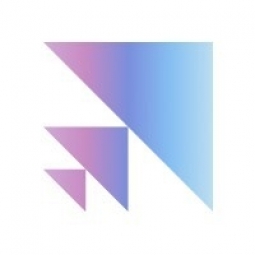Download PDF
Voxel's Transformation: Enhancing In-house Labeling Operations for High-Quality Training Data
Technology Category
- Analytics & Modeling - Computer Vision Software
- Platform as a Service (PaaS) - Application Development Platforms
Applicable Industries
- Education
- Equipment & Machinery
Applicable Functions
- Quality Assurance
Use Cases
- Computer Vision
- Visual Quality Detection
Services
- System Integration
- Training
The Challenge
Voxel, a company leveraging AI and computer vision to manage risk and operations, faced two significant challenges. Firstly, they needed to maintain high-quality training data for their computer vision system. Secondly, they sought to automate their labeling process for faster throughput while retaining their in-house annotation team. Voxel had already invested in an in-house annotation team of subject matter experts, but they were struggling with efficiency in their labeling operations. They had been using an open-source solution, Computer Vision Annotation Tool (CVAT), which was causing bottlenecks as they increased the volume of annotations needed for model training. From an operational perspective, Voxel found it difficult to efficiently collect data and insights on the data labeling process, leading to significant manual effort. The tool couldn’t effectively link data quality to individual annotators, making it hard to identify the cause of low-quality labels. On the engineering side, Voxel had to custom-build data pipelines for new customer projects, a process that took multiple engineers four weeks for each project.
About The Customer
Voxel is a company that leverages AI and computer vision to change how companies manage risk and operations. They enhance their customers' security cameras with real-time AI to detect hazards, risky activities, and operational inefficiencies. Their technology delivers insights that can prevent injuries before they happen and improve the safety culture in hazardous and dynamic environments. To develop a robust computer vision system, Voxel requires large amounts of high-quality training data. They have an in-house annotation team of subject-matter experts who are well-versed in handling Voxel's specific use case.
The Solution
Voxel partnered with Scale Studio to overcome their challenges. Scale Studio was chosen for its comprehensive management features, easy integration of data pipelines, ecosystem of integrated ML tools, and its experience with processing billions of annotations. Scale Studio's features included training courses, benchmark tasks, and annotator metrics such as throughput, efficiency, and accuracy. The platform also offered APIs for easy integration of data pipelines and quick setup of labeling projects. Scale Studio's ecosystem of integrated ML tools, such as Nucleus for dataset curation and management, and Rapid for Scale-managed dataset annotation, were also beneficial. Scale Studio's customer success and engineering teams provided strong technical knowledge and responsiveness, partnering with Voxel to ensure all frames of complex variable-frame-rate (VFR) videos were extracted to maximize the accuracy of the annotations and the model.
Operational Impact
Quantitative Benefit
Related Case Studies.

Case Study
Smart Water Filtration Systems
Before working with Ayla Networks, Ozner was already using cloud connectivity to identify and solve water-filtration system malfunctions as well as to monitor filter cartridges for replacements.But, in June 2015, Ozner executives talked with Ayla about how the company might further improve its water systems with IoT technology. They liked what they heard from Ayla, but the executives needed to be sure that Ayla’s Agile IoT Platform provided the security and reliability Ozner required.

Case Study
IoT enabled Fleet Management with MindSphere
In view of growing competition, Gämmerler had a strong need to remain competitive via process optimization, reliability and gentle handling of printed products, even at highest press speeds. In addition, a digitalization initiative also included developing a key differentiation via data-driven services offers.

Case Study
Predictive Maintenance for Industrial Chillers
For global leaders in the industrial chiller manufacturing, reliability of the entire production process is of the utmost importance. Chillers are refrigeration systems that produce ice water to provide cooling for a process or industrial application. One of those leaders sought a way to respond to asset performance issues, even before they occur. The intelligence to guarantee maximum reliability of cooling devices is embedded (pre-alarming). A pre-alarming phase means that the cooling device still works, but symptoms may appear, telling manufacturers that a failure is likely to occur in the near future. Chillers who are not internet connected at that moment, provide little insight in this pre-alarming phase.

Case Study
Premium Appliance Producer Innovates with Internet of Everything
Sub-Zero faced the largest product launch in the company’s history:It wanted to launch 60 new products as scheduled while simultaneously opening a new “greenfield” production facility, yet still adhering to stringent quality requirements and manage issues from new supply-chain partners. A the same time, it wanted to increase staff productivity time and collaboration while reducing travel and costs.

Case Study
Integration of PLC with IoT for Bosch Rexroth
The application arises from the need to monitor and anticipate the problems of one or more machines managed by a PLC. These problems, often resulting from the accumulation over time of small discrepancies, require, when they occur, ex post technical operations maintenance.

Case Study
Robot Saves Money and Time for US Custom Molding Company
Injection Technology (Itech) is a custom molder for a variety of clients that require precision plastic parts for such products as electric meter covers, dental appliance cases and spools. With 95 employees operating 23 molding machines in a 30,000 square foot plant, Itech wanted to reduce man hours and increase efficiency.





